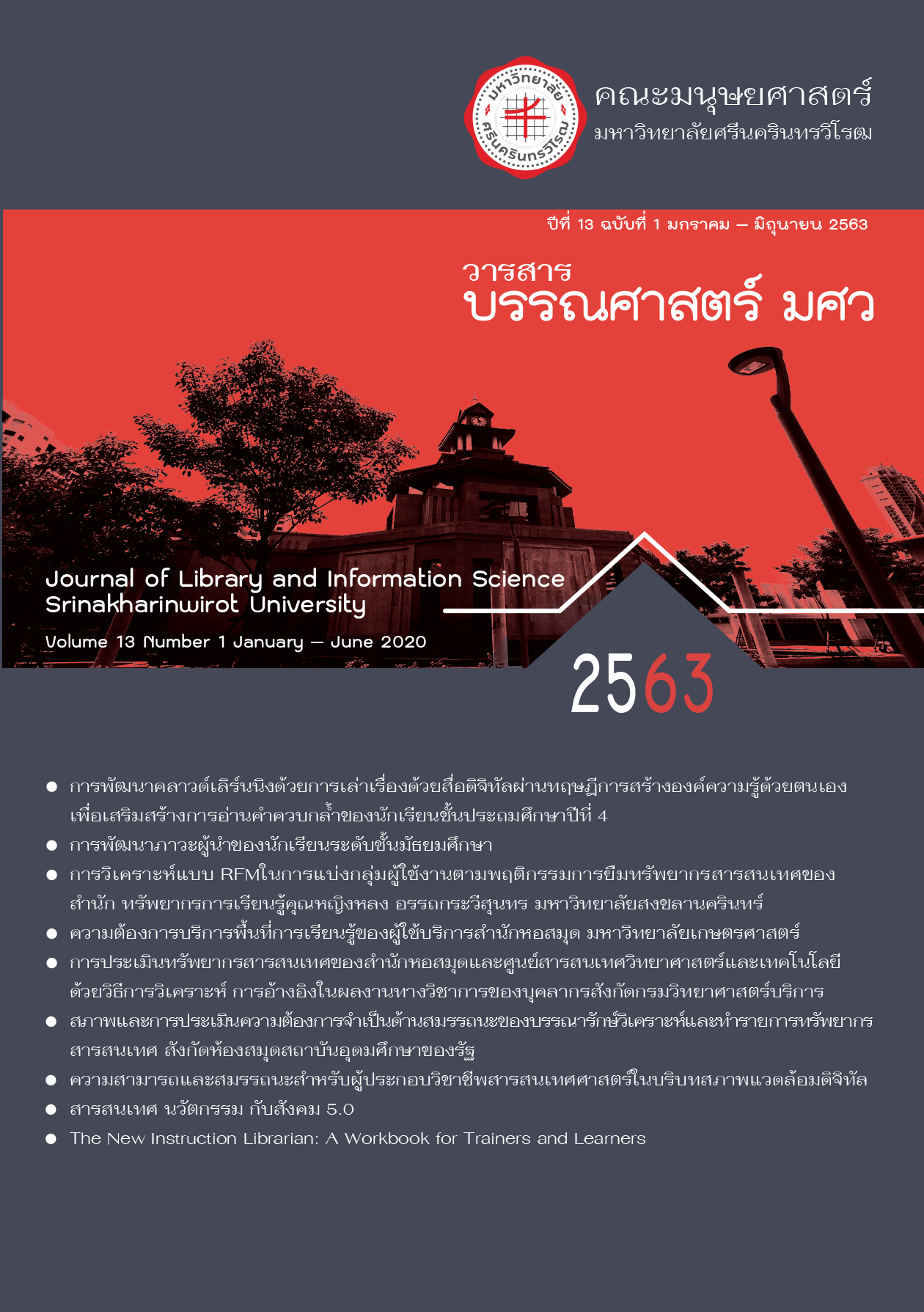The Conditions and Needs Assessment on the Competencies of Cataloging Librarians in Public University Libraries
DOI:
https://doi.org/10.14456/jlis.2020.6Keywords:
Professional competency, Cataloging librarian, Needs assessment, Public university libraryAbstract
The research aims to study and compare the competency conditions of cataloging librarians in public university libraries, in terms of their knowledge, skills, and behavioral competency, according to their education backgrounds and experiences; and to conduct a needs assessment on their competencies; using the quantitative research method. The sample consisted of one hundred and fifty-eight cataloging librarians from thirty public university libraries. The data were collected through the questionnaires and analyzed the descriptive statistics such as percentage, mean, standard deviation. The t-test and One-way ANOVA were used for the hypothesis testing as well as the modified Priority Needs Index (PNImodified) was used for needs assessment. The results of the overall competencies of cataloging librarians was at a high level ( = 3.74). In terms of their specific competencies, behavioral competency and skills were both at a high level, while their knowledge was at a moderate level. For the comparison based on their variables, it was found that the statistically significant difference of overall competencies of librarians with different education backgrounds and experiences was at .05. As for need assessment in cataloging librarians, three aspects of needs were prioritized that the most needed competencies were knowledge (PNImodified = 0.28), skills (PNImodified = 0.24), and behavioral competency (PNImodified = 0.16).
Downloads
Published
Issue
Section
License
Copyright Notice
Copyright of articles in the journal of Journal of Library and Information Science Srinakharinwirot University is the author's and the Faculty of Humanities, Srinakharinwirot University. All articles submitted for publication will be assessed by a group of distinguished reviewers. The Faculty of Humanities, Srinakharinwirot University and the editorial board claim no responsibility for the contents or views expressed by the authors of Individual articles. Copying is allowed freely, provided acknowledgement is made thereof, and within the scope of copyright law.



